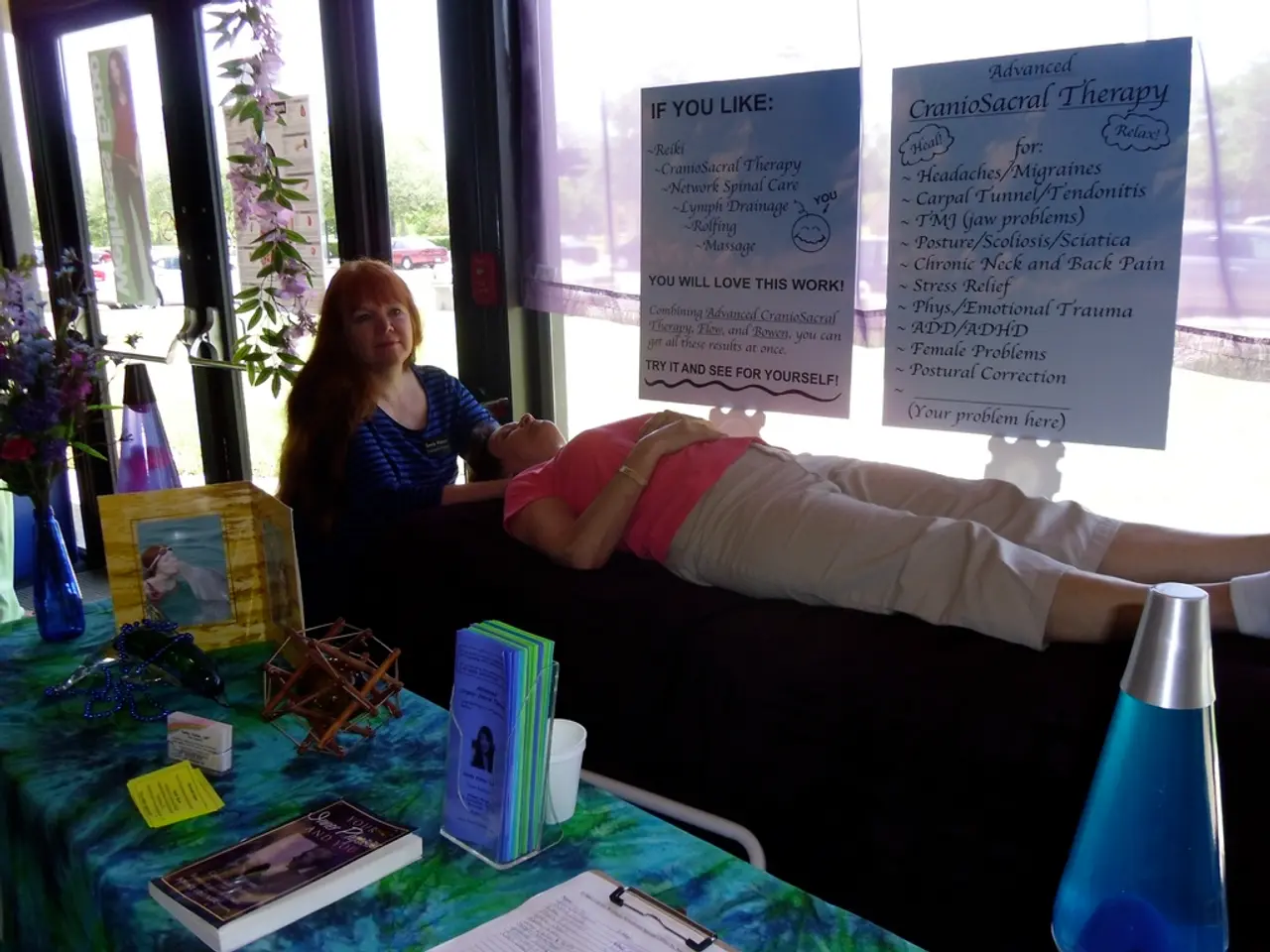Is it possible to heal brain damage caused by emotional distress?
Emotional trauma, such as that seen in Post-Traumatic Stress Disorder (PTSD), can have lasting effects on the brain. However, hope is not lost as significant improvements in brain function and quality of life are achievable through a combination of evidence-based therapies, medications, lifestyle modifications, and ongoing supportive care.
Brain damage from emotional trauma can partially be reversed through targeted therapy, lifestyle changes, and medication. Trauma-focused psychotherapies like Cognitive Behavioral Therapy (CBT), Prolonged Exposure Therapy, Cognitive Processing Therapy (CPT), and Eye Movement Desensitization and Reprocessing (EMDR) have shown strong evidence in restoring brain function and reducing symptoms by normalizing neural activity patterns [1][4]. Pharmacological treatments, such as Selective Serotonin Reuptake Inhibitors (SSRIs), can help manage symptoms, enabling better engagement with therapy [4].
Lifestyle changes that promote brain health, like mindfulness and meditation, regular physical exercise, good sleep hygiene, and a supportive social environment, also contribute to brain recovery by reducing stress and enhancing neuroplasticity [1]. Emerging treatments like Transcranial Magnetic Stimulation (TMS) offer non-invasive ways to stimulate brain regions affected by trauma, showing promise for further improving brain structure and function [1].
In cases of brain injury due to physical trauma, rehabilitation involving physical, occupational, and speech therapy is critical and may require months to years of consistent care. Stem cell therapy is being explored as a potential future option to repair brain tissue damaged by injury [2][3].
Herbal remedies like lavender, chamomile, and passionflower have calming effects on the nervous system and may help alleviate symptoms of anxiety and insomnia. Alternative therapies, such as acupuncture and meditation, have gained popularity in recent years as effective treatments for various health conditions, including emotional trauma [1][4].
Ongoing research and discoveries continue to shed light on new treatment options that can help alleviate symptoms associated with psychological distress while promoting healing at the neurological level. With dedication and effort coupled with evidence-based therapies such as CBT, EMDR, or Mindfulness-Based Stress Reduction (MBSR), individuals can work towards rewiring their brains to promote healing and recovery [2][3].
It's important to note that the speed of recovery varies depending on several factors such as age at the time of trauma, duration and intensity of the traumatic event, availability of support systems, and individual resilience. With patience and persistence, individuals who have experienced emotional trauma can see improvements in brain function after beginning therapy or making lifestyle changes [1].
Success stories of individuals who have effectively addressed the consequences of psychological distress through various interventions and treatments provide evidence that recovery from brain damage caused by emotional trauma is possible [4]. Early intervention is critical in addressing emotional trauma's long-term consequences, and with proper guidance and care tailored according to each individual's needs, recovery is achievable [1][2][3].
However, it's crucial to remember that recovery from emotional trauma-related brain damage may not happen overnight. With the right interventions, damaged areas of the brain can heal, leading to improved mental health outcomes for those affected by emotional trauma [1][4].
Emotional trauma can have a significant impact on the body beyond just the brain, including chronic pain, digestive issues, and cardiovascular disease. Acupuncture can reduce symptoms related to PTSD, depression, and anxiety [1].
In conclusion, while full reversal of brain damage from emotional trauma may not always be possible, significant improvements in brain function and quality of life are achievable through a combination of evidence-based therapies, medications, lifestyle modifications, and ongoing supportive care.
Neuroplasticity, a brain's ability to change and reorganize in response to new information or injury, can be fostered through targeted therapy, lifestyle changes, and medication, contributing to recovery from emotional trauma-induced brain damage.
The nervous system can benefit from herbal remedies like lavender, chamomile, and passionflower, which have calming effects and may alleviate symptoms of anxiety and insomnia.
Mental health outcomes can be improved as individuals work towards rewiring their brains through interventions like Cognitive Behavioral Therapy (CBT), Eye Movement Desensitization and Reprocessing (EMDR), or Mindfulness-Based Stress Reduction (MBSR).
Lifestyle modifications, such as mindfulness, regular physical exercise, good sleep hygiene, and a supportive social environment, play a crucial role in promoting brain health and recovery from emotional trauma.




